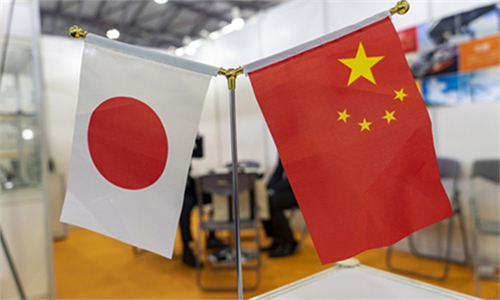COMMENTS / EXPERT ASSESSMENT
CPTPP expansion conducive to regional economic integration

Illustration: Tang Tengfei/GT
As one of the major free trade blocs in the world, the Comprehensive and Progressive Agreement for Trans-Pacific Partnership (CPTPP) is about to see a new applicant - the UK which just exited from EU. Taking in more members will strengthen the deal's reach, accelerate economic and trade integration, as well as contribute to the reshaping of the global trade order.The UK plans to submit an application to CPTPP in the near future, Reuters reported on Wednesday, citing British trade minister Liz Truss. Battered by Brexit and the COVID-19 pandemic, the British economy was estimated to have plunged by more than 10 percent in 2020 which could be the largest fall in 300 years.
While the long-awaited post-Brexit era finally begun, the country, however, has seen daily COVID-19 fatality numbers hitting record high, with a more aggressive virus mutant variant, further clouding its economic prospect.
In order to drag its economy out of the Brexit and virus quagmire, the UK has been actively seeking to participate in more regional free trade agreements and to shore up ties with major trading partners.
Echoing the CPTPP's intention to expand, the UK's joining of CPTPP would offer it a practical path to further enter the Asia-Pacific markets and deepen economic and trade relations with major economies in the region. Also, as countries including China, South Korea and others are showing rising interest in joining the pact, an earlier participation will win the UK an advantageous position amid the reshaping of the global trade rules.
Effective since December 30, 2018, the CPTPP deal was signed by 11 countries including Japan, Vietnam, Australia, Canada, Chile and Malaysia. The size of the pact covers 498 million population and approximately 13 percent of the world's total economic output.
Since the trade deal came into force, the expansion task was on agenda of CPTPP. The expansion will help shore up the influence of the agreement, promote regional economic and trade integration, as well as boost regional cooperation. In addition, as a high-level free trade pact, CPTPP will have significance to impact global trade system.
China, the world's second largest economy, also holds an open and proactive attitude toward joining the CPTPP. China's Ministry of Commerce spokesperson Gao Feng on Thursday stressed that China will further expand the scope of the free trade network, and is willing to negotiate and sign FTA deals with more trading partners to jointly advance the liberalization and facilitation of trade and investment, such as speeding up negotiations on the China-Japan-South Korea FTA, accelerating the free trade negotiations with the Gulf Cooperation Council, Israel, and Norway, as well as actively pondering to join the CPTPP.
If China joins the CPTPP, it will undoubtedly inject strong momentum into the development of the trade pact. China's market opening moves and its fast economic growth will create opportunities to CPTPP countries. Meantime, as the largest developing economy in the Asia-Pacific region, China's participation in the agreement will contribute to reshaping international economic and trade rules and promoting economic integration in the Asia-Pacific region.
Also, it will bring in interconnected development of the CPTPP and the Regional Comprehensive Economic Partnership (RCEP) which will encompass up to 30 percent of the global output and population, laying the foundation for a sweeping Free Trade Agreement of the Asia Pacific region.
However, if China stays out of the trade pact, it will intensify regional economic competition between RCEP and CPTPP, which, to some extent, could break the existing value chain within the Asian-Pacific region.
The article was compiled based on an interview of Li Chunding, head of the Economics and Trade Department of the College of Economics and Management at China Agricultural University. bizopinion@globaltimes.com.cn



